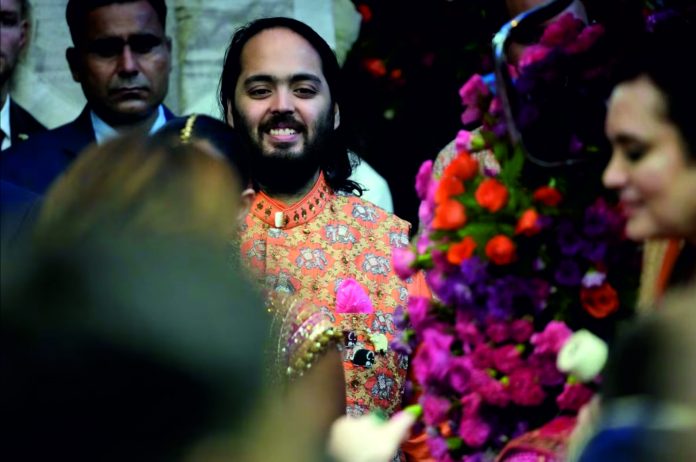By Ayesha Sultana
The Ambani family, known for their vast fortune and luxurious lifestyle, is reportedly spending over ₹5000 crore ($620 million) on the wedding of Anant Ambani and Radhika Merchant. This expenditure amounts to just 0.5% of their total net worth. The opulent affair, spread over several months, has drawn attention to the stark contrast between the wealth of India’s elite and the widespread poverty in the country.
India’s population stands at approximately 1.4 billion. If the Ambanis had distributed ₹1 crore to every Indian, they would still retain ₹4860 crore. Such an act could have significantly alleviated poverty, but instead, the family’s choice to indulge in a grand wedding has sparked discussions about wealth inequality.
The wedding festivities commenced with a pre-wedding ceremony in Jamnagar, attended by international celebrities such as Rihanna, Mark Zuckerberg, and Bill Gates. The event, which required round-the-clock operations at the Jamnagar air base, cost ₹1259 crore ($153 million). This figure dwarfs the annual education budget of Kerala for 2024, which stands at ₹1032 crore.
To put this into perspective, the cost of the Jamnagar ceremony alone exceeds the net worth of top Indian cricketer Virat Kohli, which is ₹1050 crore. Additionally, the expenses eclipse the cost of buying a daily cup of Starbucks coffee for 100,000 years.
In a country where 74% of the population cannot afford a healthy diet, the extravagant spending on the wedding contrasts sharply with the struggles of the average Indian. For example, Tamil Nadu’s Chief Minister’s Breakfast Scheme, which benefits approximately 250,000 students from Class I to Class V, costs ₹600 crore for the current financial year. This amount is less than the value of a single emerald necklace worth ₹500 crore, debuted by Nita Ambani at a previous family event.
As India’s elite continue to indulge in such lavish celebrations, the socioeconomic divide becomes increasingly apparent. The nation’s focus shifts towards these opulent displays of wealth while the majority of its citizens grapple with daily challenges, highlighting the urgent need for addressing economic disparities.
In light of these disparities, it is worth considering the principles of the Zakat system in Islam, which mandates wealth redistribution to support the needy and promote economic equity. Historically, the rule of Madinah exemplified how a society could achieve civilization, equality, and economic balance by following such principles. A system that encourages wealth sharing and social responsibility could help mitigate the glaring inequalities seen today, offering a path towards a more just and equitable society.




